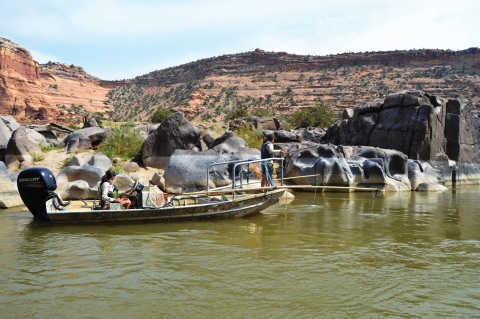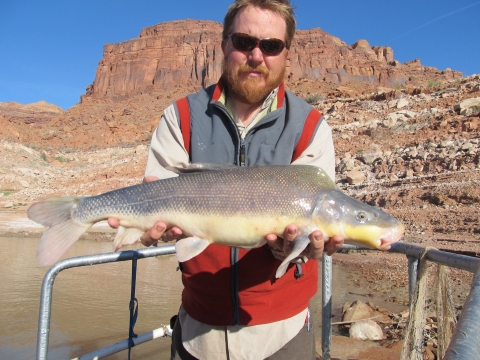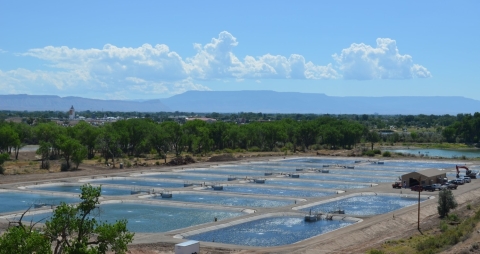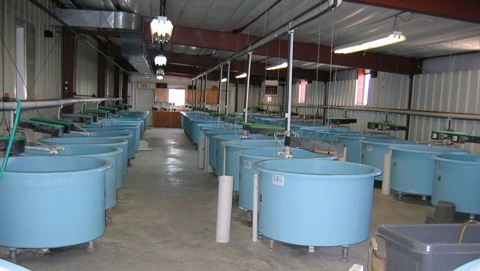About Us
Grand Junction FWCO is part of a multi agency/state/tribal effort to restore native fish populations in the upper Colorado River basin on the Colorado, Gunnison, San Juan and Yampa rivers in Colorado, Utah and New Mexico, as well as in Lake Powell in Utah. The Grand Junction Fish and Wildlife Conservation Office located in Grand Junction, Colorado, formerly known as Colorado River Fishery Project, consists of both a field office and an endangered fish hatchery - Ouray National Fish Hatchery-Grand Valley Unit.
The field office was established in 1979 to perform research and management actions aimed at helping recover four endangered fish species of the upper Colorado River basin: razorback sucker, Colorado pikeminnow, humpback chub, and bonytail. Ouray NFH-GVU was established in 1992 as an endangered fish propagation center and currently produces over 20,000 endangered bonytail and razorback sucker annually.
Our Mission
Grand Junction Fish and Wildlife Conservation Office has been applying science-based approaches to conservation challenges in the upper Colorado River basin since 1979. We work with our partners and engage the public to conserve, restore, and enhance fish and other aquatic resources for the continuing benefit of the American people. Conservation is at the heart of what we do, and we recognize that we do this work for the American people–both the present generation who benefit today and future generations who will inherit our legacy of conserving America’s aquatic resources.
Our History
The Grand Junction Fish and Wildlife Conservation Office was established in 1979 to perform research and management actions aimed at helping recover four endangered fish species of the upper Colorado River basin: razorback sucker, Colorado pikeminnow, humpback chub, and bonytail.
In 1992, the Ouray National Fish Hatchery-Grand Valley Unit was established as conservation office's endangered fish propagation center. This fish hatchery operates two facilities, Horsethief Canyon Native Fish Facility outdoor grow-out ponds in Fruita, Colorado, and the 24 Road Hatchery indoor facility in Grand Junction, Colorado. These facilities currently produce over 20,000 endangered bonytail and razorback sucker annually that are deployed into the Colorado, Gunnison, San Juan and Animas rivers. Ouray NFH-GVU now plays a key role in the Service's efforts to protect and restore declining and imperiled populations of migratory fish and other aquatic species within the upper Colorado River basin.







